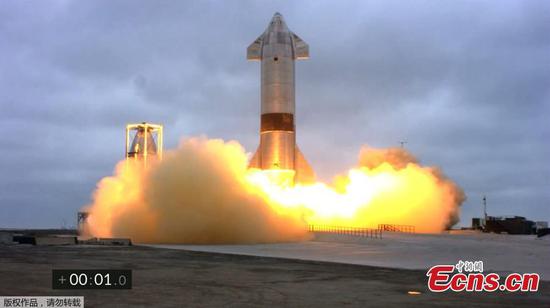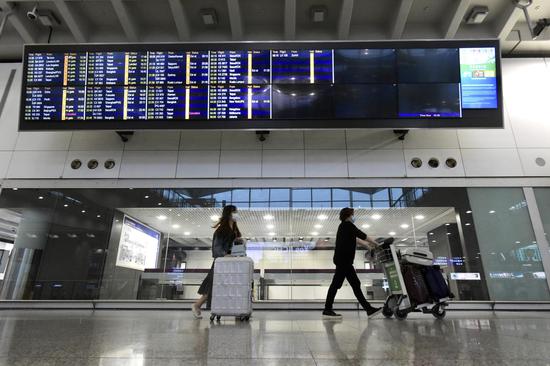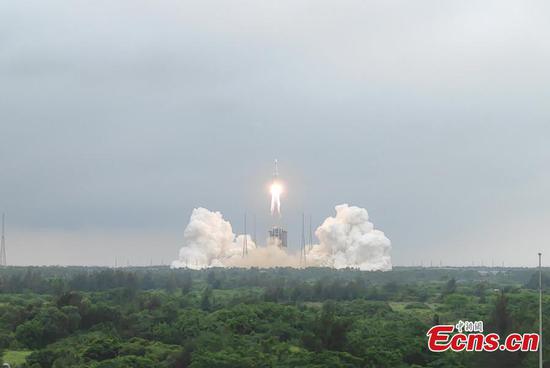
Children receive food from a charity group in Hajjah province, Yemen, March 4, 2021. (Photo/Xinhua)
Conflicts, economic crises and extreme weather conditions pushed the number of people who faced acute food insecurity to 155 million in 2020, the highest figure in five years, the United Nations' Food and Agriculture Organization (FAO) and other agencies said here on Wednesday.
FAO Director-General Qu Dongyu has called for "addressing the root causes of acute hunger, and for making agri-food systems more efficient, resilient, sustainable and inclusive."
The situation was described in the "2021 Global Report on Food Crises" issued by the Global Network Against Food Crises (GNAFC), an international alliance bringing together the UN's FAO and World Food Program (WFP), the European Union (EU), governmental agencies and no-profit organizations.
Presented at a virtual event, the report highlighted that acute food insecurity -- the condition in which the inability to find adequate food puts the life and livelihood of a person in immediate danger -- was spread across at least 55 countries and territories in 2020.
Among these, the most severe conditions were reported in Burkina Faso, South Sudan, and Yemen, where at least 133,000 people overall were in need of "urgent action to avert widespread death and a collapse of livelihood."


















































